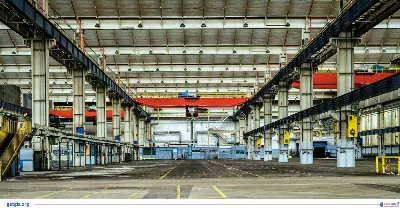Germany's Workforce Shortage: An Opportunity for Job Seekers
Updated On
-
Copy link
Explore how Germany turns its workforce shortage into a catalyst for innovation and growth, offering opportunities for an immigration-friendly approach.
Germany aims to transform its workforce shortage into an opportunity for innovation and growth, as German Economy Minister Robert Habeck outlines innovative solutions and embraces an immigration-friendly approach.
Germany's economy is aiming for continued growth but faces a crucial challenge. While concerns over Germany's growing workforce shortage have grabbed headlines, it's important to remember: challenges often breed opportunities!
While the current workforce shortage of about 700,000 vacancies presents a challenge, it also signifies a dynamic shift in the German economy, and Minister Habeck's recent announcement outlines exciting solutions to disclose Germany’s full potential.
Here's why you should be optimistic.
- Growth potential remains strong: Despite the revised forecast, Germany's economy is still projected to grow this year, indicating a resilient foundation.
- Action plan in place: The government has identified the workforce shortage as the key hurdle and is actively tackling it with innovative solutions.
- Immigration is the key: Welcoming skilled workers from abroad is crucial to bridge the gap and fuel future growth.
- Attractive reforms: Initiatives like faster visa processing and recognition of foreign qualifications make Germany a more welcoming destination for talent.
Also, read: Germany to launch 4-Day Workweek Experiment from Feb 1
Innovative Solutions for a Brighter Tomorrow
Minister Habeck highlights solutions to combat the workforce shortage in Germany, including incentivizing longer and more flexible work in old age and reevaluating unemployment welfare benefits. These forward-thinking strategies aim to tap into untapped potential within the workforce.
Explore: Germany's Triple Win Program Targets Nursing Shortage with International Recruitment
A Call for Collaboration and Adaptation
With an aging population and millions of unfilled vacancies projected, Germany acknowledges the necessity of migration to bridge the workforce gap.
By embracing an immigration-friendly approach with streamlined visa procedures and enhanced support for migrant workers, Germany sets the stage for inclusive growth and diversity.
Dive into: Germany's New Immigration Rules: A Gateway to Opportunity for Skilled Workers
Empowering Change with GetGIS
As Germany charts its path forward, it embraces a vision of inclusivity, innovation, and collaboration. By fostering an environment conducive to talent attraction and retention, Germany aspires to disclose its full potential and maintain its position as a global economic powerhouse.
In navigating the complexities of workforce shortages and immigration policies, GetGIS stands as a trusted partner. With our expertise in immigration consulting and personalized support, we empower individuals and businesses to seize opportunities and thrive in Germany's dynamic landscape. Together, let's start a journey towards a brighter, more inclusive future for all.
FAQs
1. What is the projected shortfall of skilled workers in Germany by 2035, as per official estimates?
Official estimates suggest Germany will face a shortfall of seven million skilled workers by 2035 due to an aging population.
2. Do Germans believe work is not worthwhile in Germany?
Yes, more than half of Germans believe work is not worthwhile after the government's planned increase in welfare payments and child benefits.
3. How many people aged between 20 and 30 in Germany lack a professional qualification?
Around 2.6 million people aged between 20 and 30 in Germany have no professional qualification, contributing to the workforce shortage.
4. What steps has Berlin taken to attract migrant workers to Germany?
Berlin has introduced laws to make the country more attractive for migrant workers, including shortening paths to citizenship, speeding up visa issuance, and recognizing foreign qualifications.
5. What political challenges does Germany face regarding immigration?
Despite efforts to attract more migrants, there is resistance from some segments of society, as reflected in the rising support for nationalist parties like the Alternative for Germany (AfD).




